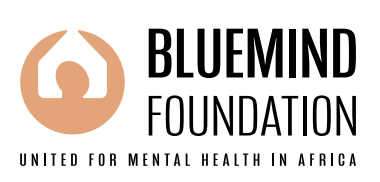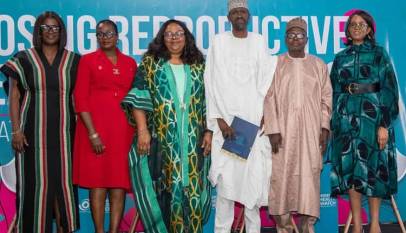2024 UNCSC: Mainstreaming Civil Society Voices in Summit of the Future Processes
Ahead of the United Nations Summit of the Future (SOTF), which seeks to patch up the increasingly eroding trust in multilateral cooperation’s capacity to effectively tackle current and future global challenges, the 69th UN Civil Society Conference (2024 UNCSC) in Support of the SOTF took place on May 9-10 in Nairobi, Kenya, the first time such a conference was tied to a specific intergovernmental process and the first time it took place in Africa and the Global South.
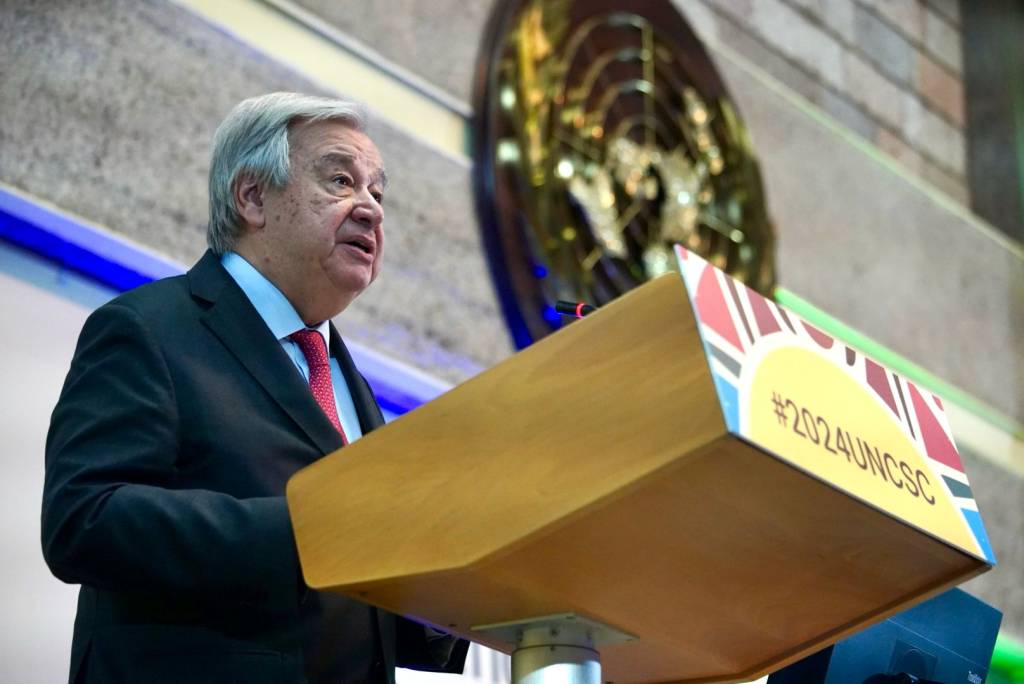
The United Nations Summit of the Future (SOTF) seeks to patch up the increasingly eroding trust in multilateral cooperation’s capacity to effectively tackle current and future global challenges, specifically the threatened role of the UN in global affairs. Beyond UN Charter reforms, SOTF seeks the reform of the UN Security Council, the Bretton Woods Institutions [World Bank and International Monetary Fund (IMF)] as well as fast-tracking the implementation of the Sustainable Development Goals (SDGs).
Ahead of SOTF, planned for September 22 – 23 in New York, the 69th UN Civil Society Conference (2024 UNCSC) in Support of the SOTF took place on May 9-10 in Nairobi, Kenya, under the theme: “Shaping a Future of Global and Sustainable Progress.” It was the first time such a conference was tied to a specific intergovernmental process and the first time it took place in Africa and the Global South.
Thus, the 2-day convening was a platform for multistakeholder engagement around diverse perspectives that would feed into the SOTF, whose main outcome would be the Pact for the Future. The Pact is to be intergovernmentally negotiated and agreed upon by consensus by the UN General Assembly as the SOTF’s main outcome document, along with the Global Digital Compact and Declaration on Future Generations. The Pact’s basis was the UN Secretary General’s Our Common Agenda (OCA) report and various policy briefs and consultations.
The 2024 UNCSC was co-hosted by the UN’s Department of Global Communications (DGC) in collaboration with the global civil society community through the Coalition for the UN We Need (C4UN), the Global NGO Executive Committee (GNEC), the Conference of Non-Governmental Organizations in Consultative Relationship with the United Nations (CoNGO) as well as the Major Groups and Other Stakeholders (MGoS) Coordination Mechanism, among others.
The main objectives of the Conference, which is the UN’s premier civil society convening, were increased awareness and accountability on the SOTF process through the amplification of diverse voices and initiatives to inform an inclusive Pact for the Future; building a multi-stakeholder ImPACT Coalitions constituting Member States, civil society, academia, think tanks, foundations, and the private sector, to champion, act on, and push forward specific issue areas; as well as innovating the way civil society interacts with intergovernmental processes.
“Int’l Financial System Outdated, Unjust, and Dysfunctional” – Guterres
In his remarks, UN Secretary General António Guterres expressed concern about the world’s contemporary challenges, namely the multiple and devastating conflicts, deepening inequality, and pervasive poverty, which he said had collectively put global sustainable development at risk. He also underlined what he described as the suffocating debt burden on many developing nations and the cost-of-living crisis as factors militating against their development.
Mr Guterres also pointed out the severe impacts of climate change in the form of extreme weather events such as the recent deadly floods in Kenya, the brunt of which was being suffered by the country’s poorest communities. He also underscored the threats posed by emerging technologies such as Artificial Intelligence, which he said were further intensifying old prejudices and creating new dangers.
The UN chief acknowledged the paralysis of the Security Council and decried the world’s “outdated, unjust, and dysfunctional international financial system” that fails to provide adequate debt relief to developing countries. He underscored the crucial role of civil society in his vision for a more inclusive, networked and effective multilateral system as contained in his own “Our Common Agenda” report, which outlines this vision and emphasizes that civil society’s contribution is central, not peripheral.
“At the national level, civil society is an essential bridge between people and their representatives – part of the glue that holds democracies together. Thus, I believe it is crucial to establish dialogue between political decision-makers and civil society within all our international institutions. This is key to rebuilding trust and restoring legitimacy; and to ensuring international decisions are shaped by the concerns, the values and the experiences of people across the globe.
“The Summit of the Future is a key moment to drive forward our vision for a renewed multilateralism. Therefore, we must close digital divides, and move towards new governance structures using new technologies – harnessing Artificial Intelligence as a force for good for all humanity – not just for the rich. We also need to reposition disarmament at the centre of the international agenda and act urgently to create a world free from nuclear weapons,” Mr Guterres urged.
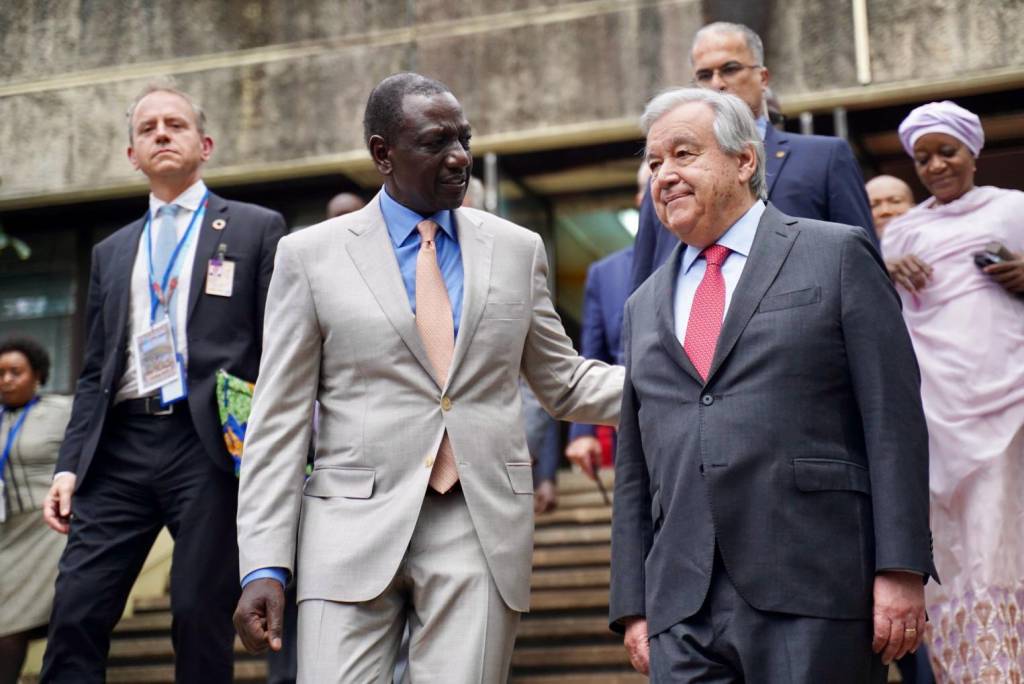
“Civil Society Crucial in Shaping the Future” – President Ruto
In his remarks at the closing of 2024 UNCSC, President William Ruto of Kenya emphasized the crucial role of Civil Society Organizations in shaping the future, highlighting the need for global responses to global challenges. Ruto, who acknowledged the pressure on governments to deliver immediate results while pursuing long-term sustainable development strategies, described the non-state sector as vital for inclusive growth and sustainable development.
The Kenyan president said attaining meaningful development required the involvement of an all-of-society coalition, including civil society, NGOs, and various community groups. He therefore underscored the significance of establishing a platform for engagement to address national cohesion and inequality challenges. Ruto also committed to operationalizing Kenya’s Public Benefits Organizations Act, which has stalled for over a decade, to expand the space for partnership and collaboration between government and NGOs.
“There’s been a debate in Kenya as to what we do with our Public Benefit Organizations, otherwise called NGOs, and there’s been a robust debate as to what parameters we apply? I see, and I am convinced, that civil society has a real chance of contributing to making our country better; we may not necessarily agree, but the beauty of having diverse opinions is that we end up with a better result.
“We have now consolidated the operations of civil society into one predictable legal regime. They now understand how they can register and conduct their business. Secondly, and most importantly, we have made it now possible for Public Benefit Organizations from outside Kenya not to be taken through unnecessary, rigorous processes before they start operations in Kenya.”
“You Can All Count on My Full Support,” UNGA President tells Civil Society
While virtually addressing the conference, Amb. Dennis Francis, President of the UN General Assembly, highlighted 2024 UNCSC’s pivotal role in shaping the upcoming Summit of the Future and therefore stressed the importance of a multi-stakeholder approach to drive transformative action and mobilize support for not just SOTF but the Sustainable Development Goals (SDGs) as well.
“As we all strive to meet the SDGs by 2030 at a time when our multilateral system and international cooperation poses major obstacles, the significance of the Summit of the Future to revitalize and even restructure global multilateral frameworks to be more inclusive, flexible, effective and equitable, cannot be underestimated. However, such an undertaking cannot be fulfilled by Member States alone as it requires a multi-stakeholder approach,” the Trinidadian diplomat noted.
The UNGA President described civil society organizations, youth changemakers, academia, public opinion makers, and the media as indispensable in mobilizing communities and driving inclusive programs, calling for sustained engagement and collaboration beyond SOTF, to ensure the Summit serves as a catalyst for impactful global action while its outcome is people-centered and prioritize the needs of the most vulnerable.
“We count on your contribution to ensure an outcome that prioritizes the needs of the most vulnerable, with gender and youth perspectives, in the true spirit of leaving no one behind. I eagerly await the outcomes of your deliberations, and you can all count on my full support to ensure that you are not ignored or overlooked. Together, we can direct our efforts towards achieving transformative change, crafting an indelible legacy of peace, progress, prosperity and sustainability for the present and future generations,” the UNGA President assured.
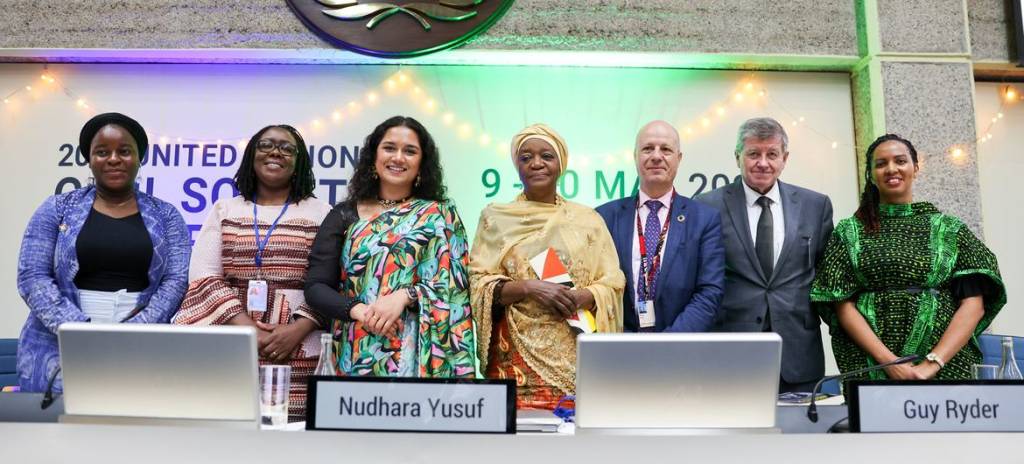
“Multilateralism Should Reflect People’s Will” – UN DSG Mohammed
UN Deputy Secretary-General Amina Mohammed began her remarks with condolences to the victims of the recent devastating floods in Kenya and reiterated the UN’s commitment to supporting the affected communities, calling for an immediate ceasefire in Gaza. She emphasized the deep connection between civil society and the UN, admitting civil society groups’ role in advancing UN values around the world.
Ms Mohammed therefore praised global civil society’s efforts in fighting for justice, peace, gender equality, and human rights, urging more active engagement and collaboration to make multilateralism inclusive and effective. She described the upcoming SOTF as a generational opportunity to reform global institutions and financial architecture, accelerate implementation of SDGs and guarantee better response to new and emerging peace and security challenges.
“Given this opportunity, we need active [civil society] participation and involvement. We need a movement for the people and by the people to fully engage with the leaders in your countries, to join forces with civil society across regions. We need to see multilateralism reflect the changes people need to see in their daily lives. And most of all, to make your voice count now. As Madiba [Nelson Mandela] said, ‘it always seems impossible until it’s done,’” Ms Mohammed stated.
“We Remain Open to Dialogue, Engagement with Civil Society” – Amb Milambo
Amb Chola Milambo, Permanent Representative of Zambia to the UN and Co-facilitator of the Global Digital Compact, expressed appreciation for the diverse perspectives shared by civil society at the Conference around the Pact for the Future, the Declaration on Future Generations, and the Global Digital Compact. Chilombo also acknowledged the diversity of voices represented at the Conference, namely young people, women, people living with disabilities as well as other underrepresented groups.
The Zambian diplomat noted the reality that the world was fast changing, hence the need for a Pact for the Future that reaffirms the principles of a sound multilateral system, while being adaptable to the evolving global landscape. He therefore underscored the necessity of extending the spirit of multi-stakeholderism into various processes leading to the SOTF and reaffirmed their openness to continued dialogue with civil society and other stakeholders.
“Be assured that we remain open to dialogue, to engage with the civil society, to hear your voices in the process. I would now like to extend my special thanks to the co-chairs of the conference [Nudhara Yusuf and Carole Osero-Ageng’o]. We have to rebuild trust; let us all be successful in this quest because it will change lives. It matters for the future. It matters for the unborn children, let us make this happen,” Chilombo concluded.
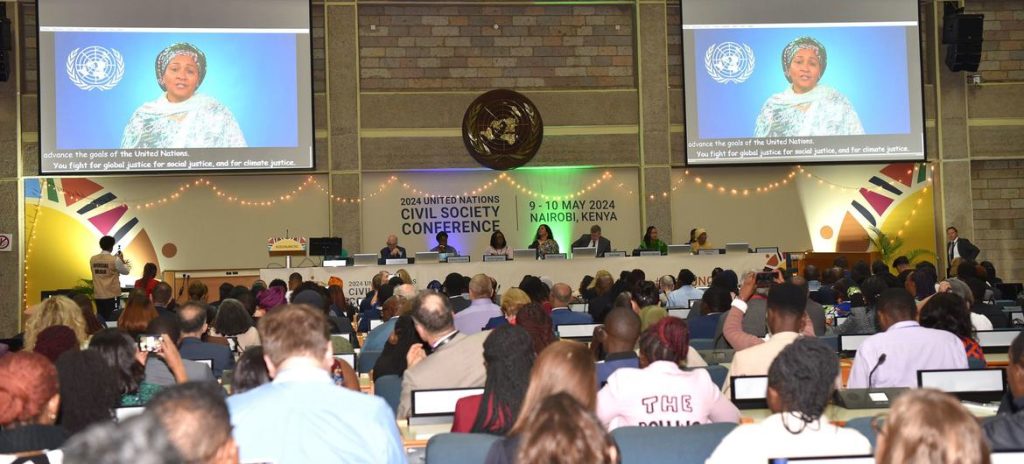
“Conference Inclusive of all Segments of Society” – 2024 UNCSC Co-Chair
In her remarks, Carole Osero-Ageng’o, Africa Regional Representative for HelpAge International cum Co-Chair of the Planning Committee of the 2024 Civil Society Conference highlighted the importance of citizens’ participation in fostering meaningful engagement and rebuilding trust in the multilateral system. She emphasized the significance of the conference’s role in mobilizing support for SOTF from across the globe.
“This conference marked the UN Civil Society Conference’s first venture into the Global South, which shows the persistent inequality and exclusion faced by civil society in the Global South. Historically, access to previous conferences has been hampered by various barriers, most notably visa restrictions,” the Co-Chair stated.
Ms Osero-Ageng’o added that the 69th UN Civil Society Conference prioritized inclusion and participation of all segments of society including women and youth with these diverse categories of people participating in its ten different subcommittees, thereby enhancing inclusivity.
The 2024 UNCSC Co-Chair ended her remarks with two African proverbs: “‘It is only by the strength of their numbers that the ants in the field can carry their prey to the nest’ and ‘When hunger strikes a country, no one is spared.’ These proverbs underscore the importance of organizations in the Global South harnessing their collective strength and collaboration as they move towards the Summit of the Future.”
A Summary of 2024 UN Civil Society Conference
The first day of 2024 UNCSC was tagged “PACT Day”. It focused on analyzing the Five Chapters of the Pact for the Future and its annexes— Sustainable Development and Financing for Development; Peace and Security; Science, Technology and Innovation and Digital Technology; Youth and Future Generations; as well as Transforming Global Governance.
The highlight of the day was a plenary session where civil society presented recommendations from the various conference workshops culminating with an interactive dialogue with the six co-facilitators of the SOTF processes: Germany and Namibia for the Pact for the Future; Jamaica and Netherlands for the Declaration on Future Generations; and Zambia and Sweden for the Global Digital Compact.
The key issues discussed on the first day ranged from long-standing concerns like the use of nuclear weapons, international finance, and progress in gender equality, to emerging issues like the equitable distribution of digital technology, the governance of artificial intelligence, and foresight in multilateralism.
Equally, the second day, tagged “Impact Day”, created opportunities for delegates working on similar issues to come together and advance plans for the coming months, concluding with a report back from 20 ImPACT Coalitions (ICs), which brings together stakeholders working on various issues related to the SOTF to create networks that support Member States who wish to champion specific reforms and proposals toward the Summit.
The outcome of the 2024 UN Civil Society Conference i.e. the ImPACT for the Future Package was presented to the public on May 30, including a Co-Chairs Summary highlighting key recommendations as well as work plans from the ICs. The ICs seek to innovate the way civil society engages intergovernmental processes, focusing not just on what we expect from Member States, but on what we can offer Member States who wish to champion and unlock critical issues that civil society and other stakeholders have mobilized around for decades.
In total, 2158 civil society delegates physically attended the Nairobi conference, as well as 317 officials from Member States, international organisations, and the UN system. This is in addition to 67 media representatives and 47 volunteers – all from across 115 countries – with hundreds more online. Overall, there were 62 off-site and online events in addition to 38 onsite workshops on May 9 as well as more than 20 ImPACT coalitions on May 10. This is just as 70 percent of the participants were from Africa, 52 percent women, while 40 percent were under the age of 35.



